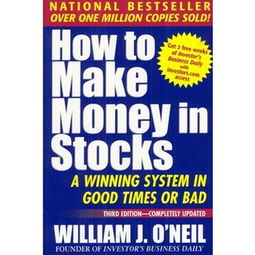How to Make Money When the Market Crashes
Market crashes can be a terrifying time for investors, but they also present unique opportunities for those who know how to navigate the turbulent waters. Whether you’re a seasoned investor or just starting out, here’s a detailed guide on how to make money when the market crashes.
Understanding Market Crashes

Before diving into strategies, it’s crucial to understand what a market crash is. A market crash is a rapid and significant decline in the value of financial assets, typically measured by a drop of 20% or more from recent highs. These crashes can be caused by a variety of factors, including economic downturns, political instability, or unexpected events.
1. Diversify Your Portfolio

Diversification is key to protecting your investments during a market crash. By spreading your investments across different asset classes, sectors, and geographical regions, you can reduce your exposure to any single market’s volatility. Consider including the following in your diversified portfolio:
-
Stocks: Invest in a mix of large-cap, mid-cap, and small-cap stocks to capture different growth opportunities.
-
Bonds: Include government and corporate bonds to provide stability and income.
-
Real Estate: Invest in real estate properties or real estate investment trusts (REITs) for long-term growth and income.
-
Commodities: Invest in commodities like gold, silver, and oil for diversification and as a hedge against inflation.
-
Currency: Consider investing in foreign currencies to diversify your portfolio and protect against currency fluctuations.
2. Focus on Value Investing

During a market crash, many stocks become undervalued. Value investing involves identifying companies that are trading below their intrinsic value. To find these opportunities, look for stocks with strong fundamentals, such as high earnings, low debt, and a solid business model. Some popular value investing strategies include:
-
Screening: Use financial ratios and metrics to identify undervalued stocks.
-
Research: Conduct thorough research on companies to understand their business models and growth prospects.
-
Patience: Be prepared to hold onto your investments for the long term, as value investing can take time to pay off.
3. Leverage Dividend Stocks
Dividend stocks can be a valuable asset during a market crash, as they provide income and stability. Look for companies with a strong history of paying dividends and a solid dividend growth rate. Some factors to consider when selecting dividend stocks include:
-
Dividend Yield: A higher dividend yield can provide more income, but it’s important to consider the company’s financial health.
-
Dividend Growth: Companies with a history of increasing dividends are often more stable and have strong fundamentals.
-
Dividend Payout Ratio: A lower payout ratio indicates that the company has more room to increase dividends in the future.
4. Use Options for Leverage and Protection
Options can be a powerful tool for both leveraging your investments and protecting against market downturns. Here are some strategies to consider:
-
Call Options: Buy call options on stocks you believe will rise in value. This allows you to gain leverage and potentially earn higher returns.
-
Put Options: Buy put options on stocks you believe will decline in value. This can protect your portfolio from market downturns and provide a source of income.
-
Straddles: Combine a call and a put option on the same stock to profit from both rising and falling markets.
5. Stay Informed and Patient
During a market crash, it’s crucial to stay informed and patient. Keep an eye on market news, economic indicators, and company earnings reports. Avoid making impulsive decisions based on panic or fear. Instead, focus on your long-term investment strategy and stay committed to your diversified portfolio.
6. Consider Short Selling
Short selling is a strategy where you borrow shares of a stock and sell them at the current market price, with the intention of buying them back at a lower price in the future. This can be a lucrative strategy during a market crash, as you can profit